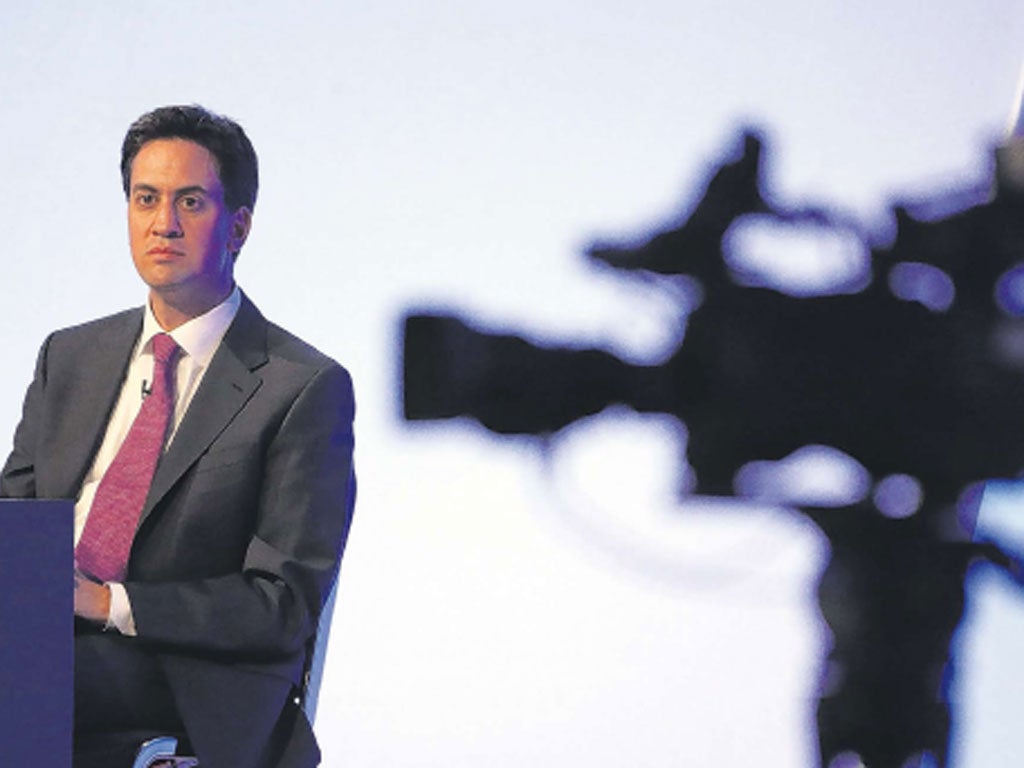Miliband must step up with a powerful message
This week Ed Milliband must make clear he's a plausible Prime Minister. Is there anything to learn from the history of US presidential debates?

For all the witless blather and bloviating of party conference season, the two most powerful messages in modern politics remain unchanged: "time for a change", and "don't risk it". Successful insurgents embody the former (Obama, Reagan, Blair in 1997, Thatcher in 1979); successful incumbents embody the latter (Franklin Roosevelt, Blair in 2001-5, Thatcher in 1983-7).
It follows that the double task for Ed Miliband this week is to make clear it's time for a change and he's a plausible Prime Minister. That is why the Tory party is trying so hard to attach him and Ed Balls to Gordon Brown and a previous (unpopular) Labour regime. Their argument is that, far from representing change, he is a throwback to a recent and unloved era.
A version of this argument will take place in America this week, in the first presidential debate between Mitt Romney and Barack Obama. Such debates are notorious for damaging rather than improving presidential ambitions. Al Gore seemed to confirm suspicions about his detached nature when he sighed constantly against George W Bush in 2000. Eight years earlier, Bush's father checked his watch after a question, suggesting to many that he had little time for ordinary people. Richard Nixon blended into the background in a grey suit during a debate against John F Kennedy in the era of black-and-white television.
Romney's task is to restore focus to the economy and jobs crisis; Obama's is to portray his opponent as out of touch. In graduating from insurgent to incumbent, the President has to abandon the lofty rhetoric. When, in May 2015, the three Party leaders here debate on television, the fact of Coalition will confuse roles. Miliband is for change, obviously; but David Cameron and Nick Clegg will be campaigning both for change (majority government) and against risk (Milibandism).
In the digital age, perception is becoming all in politics, and politicians have the impossible task of simultaneously answering public calls for authenticity and appealing to a big enough range of voting groups, with all their disparate and irreconcilable demands.
The time afforded to engage with those voters is precious and minimal. If Romney, Obama, Cameron, Clegg, and Miliband have their wits about them, they will use television debates to connect directly with voters (including by looking into the right camera, as Clegg did in 2010, and talking in plain language) and embody absolutely one of those two powerful messages.
So far, not much about Miliband's reign has suggested he can do that.

Join our commenting forum
Join thought-provoking conversations, follow other Independent readers and see their replies